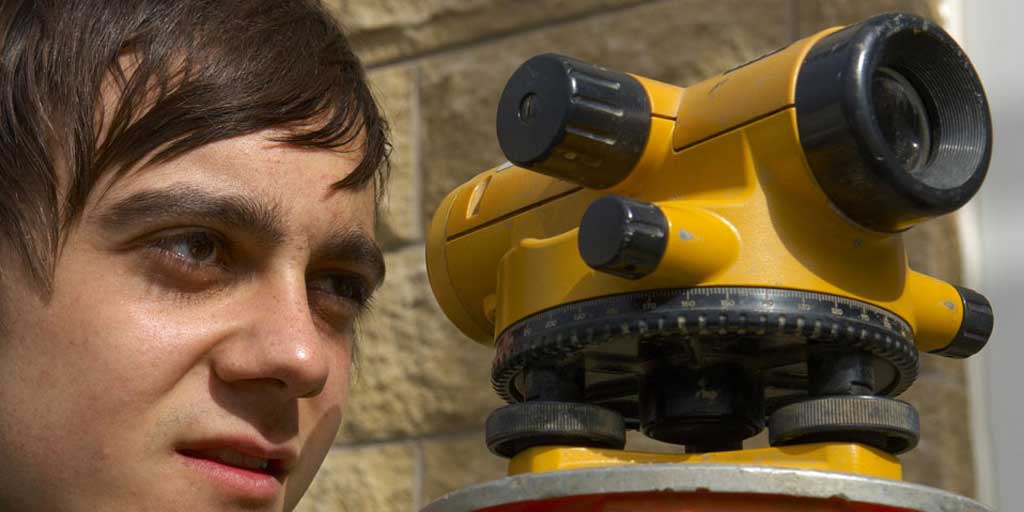
Building Surveyor Jobs – Young Jobseeker Info
Building Surveyor jobs… did you know?
Building surveyors have their fingers in every pie when it comes to construction, so they have more variety in their working day than many other jobs out there. They give advice to clients about the design, construction, maintenance and repair of buildings.
Industry: Construction
Building Surveyor job trends
Business and related research professionals
Weekly Pay 760 | Annual Pay 39,520 |
Hours/Week 37h | Hourly Pay 21 |
Workforce Change (projected)
Growth 12.2% |
The workforce is projected to grow by 12.2% over the period to 2035, creating 8,900 jobs.
You might find this job in
- Health
- Head offices, etc
- Education
- Public admin. & defence
- Retail trade
| More info | Clear card |
How much money can you make as a building surveyor?
£22,000 – £70,000 (UK average)
Recent labour market information says you can earn on average £22,000 – £70,000 a year as a building surveyor in the UK.
Your starting salary can vary because of factors like level of experience, training, location or the size of the company. Your salary as a building surveyor will increase over time as you build skills, knowledge and experience.
As a partner or director in a company you could earn even more than £70,000 a year.
What entry qualifications and training do you need for this job?
School and university
You do typicially need a degree to become a building surveyor. However, you don’t always need to go to university to get that precious degree – and there are alternative routes into this career too. More on that in a bit!
If you’re taking the university route, you’ll need to complete a Royal Institution of Chartered Surveyors (RICS) accredited degree course, followed by professional development training. Example surveying degree courses include:
- surveying
- construction
- civil engineering
- building engineering
You can still become a surveyor if you’re a graduate who studied something else at university. If you have a non-RICS accredited degree, you can take a postgraduate course in surveying. There are three popular ways to do this:
- Get accepted on a company’s graduate training scheme
- Study full-time at a RICS-accredited university
- Take a distance learning postgraduate conversion course (if you’re already working in engineering)
Alternative routes into a building surveying career
You can do an HNC, HND or foundation degree in surveying or construction. On completing your course, you might be able to start working as a surveying technician. Once you’ve got your foot in the door, you can take further qualifications to become a fully qualified building surveyor.
Surveying degree apprenticeships
DID YOU KNOW? RICS are keen to avoid creating barriers for young people who might want to get into surveying. Everyone knows that university can be expensive, and not for everyone.
School leavers can sign up to the Chartered Surveyors Training Trust (CSTT). This organisation helps young people become surveyors by offering apprenticeship schemes that go towards qualifying you for associate membership (AssocRICS).
Building surveying degree apprenticeships are available via a range of employers. They usually take five years to complete. You will typically spend those five years working four days a week and spending one day a week studying in a partner university.
You’ll get a salary during that time, because an apprenticeship is all about paid training.
A building surveying degree apprenticeship (level 6) won’t cost you anything either, because all the fees will be paid by the government or your employer.
On completing your degree apprenticeship you’ll end up with a BSc (Hons) degree in Building Surveying and be able to get registered as a Chartered Surveyor with the Royal Institution of Chartered Surveyors (RICS). And then it’s time to let the big money, big projects and good times roll.
To apply for a building surveying degree apprenticeship you will most likely need :
- 3 GCSEs at grades 1-4 (A*-C) including English and Mathematics
- 2 A-levels or the equivalent
Career progression and further qualifications
With time and experience, you could get promoted into project management or senior lead roles.
You could go into partnership in a private practice. You could also become self-employed as a building surveyor consultant.
You don’t have to stay in the world of building surveying, either. You could also move into a related field, like building control.
What experience do you need for building surveyor jobs?
Work experience
Doing work experience in a construction and property environment can help you decide if this is the right career for you. Try looking for work experience in:
- architectural firms
- engineering design consultancies
- construction and property consultancies
- real estate firms and real estate services companies
- property design and management services
Examples of relevant work experience include:
- Work shadowing (even if it’s just for a day)
- Work placements in a company
- Work placements on a degree course
- Year in Industry work experience programme for pre-university/undergraduates
Volunteering
Volunteering always looks good on a building surveyor’s CV. You’re picking up valuable life and work skills that fit into any job environment, regardless of what volunteering you do. Even skills you build like event planning or community management – which don’t seem immediately relevant to building surveying – could show you have the right stuff and make your job application stand out.
What skills do you need for building surveyor jobs?
What life and work skills do you need to be a great building surveyor?
- Problem-solving skills
- Accuracy
- Being able to understand what data tells you about a project
- Strong presentation and communication skills
- Good planning and organisation skills
Start building these skills right now – sign up for free Young Professional training.
What does a building surveyor do?
Knowing a little more about building surveying will help you understand what this job is about and help you decide if it’s right for you. The work you will do will have lots of variety, because the world of property and construction is so varied.
Example job responsibilities:
- Advising clients on projects
- Preparing project designs and costing out expected budgets
- Preparing documents for tender
- Checking the condition of existing buildings to spot issues and propose repairs
- Giving advice on environmental impact, sustainable construction and energy efficiency
- Giving advice on how best to look after historic buildings so they last for generations to come
- Giving advice on ways to manage the general maintenance of buildings
- Dealing with planning applications and advising clients
- Designing and checking over buildings for people with disabilities
- Giving advice on property rules and and regulations
- Giving advice on health and safety in buildings
- Creating insurance assessments and claims
Your first steps into building surveyor jobs
To find jobs for young people in this role, search on job boards for positions with these words in the title:
- Building surveying degree apprenticeship
- Level 6 chartered surveyor degree apprenticeship
- Chartered surveying degree apprenticeship
- Trainee building surveyor
- Junior building surveyor
- Graduate building surveyor
Useful organisations and links
- Go Construct – see more info on how to become a building surveyor, and discover other careers in construction.
- Royal Institution of Chartered Surveyors (RICS)
Construction Career Guides
View job descriptions with average UK salary, useful qualifications and a variety of routes into this career.
Construction Career Tips & Opportunities
YES! I Want More Free Careers Help...
So what are you waiting for? Grab your future.























